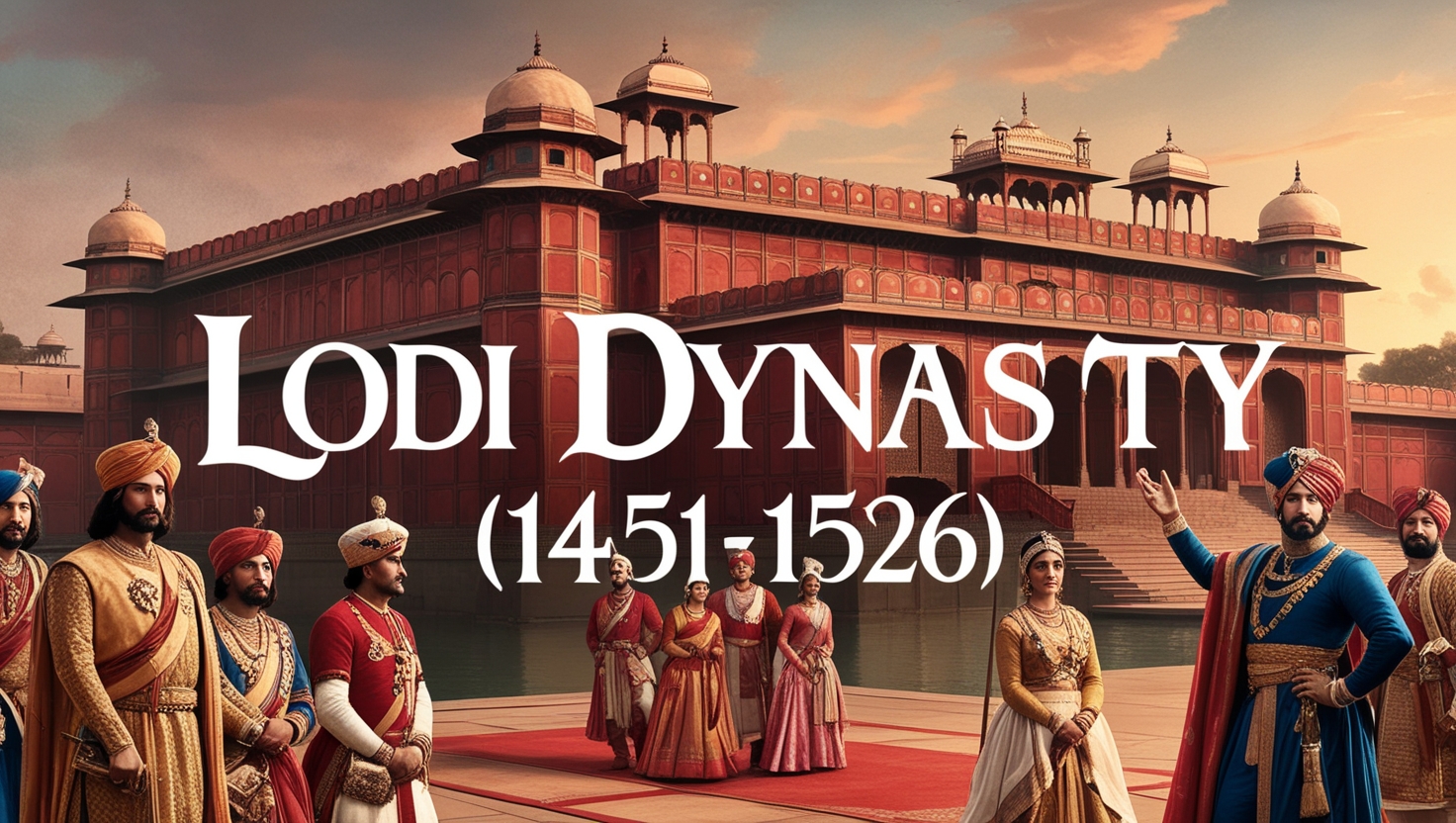
The Lodi Dynasty (1451-1526) was the last ruling dynasty of the Delhi Sultanate before the Mughal Empire’s rise. Significant rulers like Sikandar Lodi and Ibrahim Lodi shaped the political landscape of northern India. For students preparing for competitive exams, understanding this period is key. This article provides a collection of Lodi Dynasty (1451-1526) GK MCQs to help you test your knowledge and enhance your exam preparation.
1. Which of the following Sultans is known to have laid the foundation of Agra City?
- Bahlol Lodi
- Sikandar Lodi
- Ibrahim Lodi
- Shershah Suri
Show Answer
Answer: Sikandar Lodi
Sikandar Lodi, the son of Bahlol Lodi, is credited with laying the foundation of Agra City in 1503. Agra would later become a significant historical and cultural center in India.
2. Which of the following periods is associated with the Lodhi Dynasty?
- 1351-1426 AD
- 1451-1526 AD
- 1471-1536 AD
- 1491-1546 AD
Show Answer
Answer: 1451-1526 AD
The Lodhi Dynasty, which ruled from 1451 to 1526 AD, marked the final ruling family of the Sultanate period. They were of Afghan origin and played a crucial role in the history of the Indian subcontinent.
3. Which of the following laid the foundation of the Lodhi dynasty?
- Sikander Lodhi
- Ibrahim Lodhi
- Bahlol Lodhi
- None of the above
Show Answer
Answer: Bahlol Lodhi
Bahlol Lodhi’s ascent to power began with his takeover of the army, supported by nobles, leading to the foundation of the Lodhi dynasty. This marked the beginning of his rule.
4. Which of the following declared that he considered himself one of the Afghan peers and not the king?
- Sikander Lodhi
- Bahlol Lodhi
- Ibrahim Lodhi
- None of the above
Show Answer
Answer: Bahlol Lodhi
In a diplomatic move, Bahlol Lodhi publicly declared himself one of the Afghan peers, not a king, to placate Afghan nobles, highlighting the complexities of the political landscape.
5. Which Lodhi sultan annexed the Sharqui dynasty?
- Bahlol Lodhi
- Sikander Lodhi
- Ibrahim Lodhi
- None of the above
Show Answer
Answer: Bahlol Lodhi
Bahlol Lodhi annexed the Sharqui dynasty and brought the rulers of Kalpi and Dholpur under the suzerainty of Delhi, asserting his authority and expanding the influence of his rule.
6. Nizam Khan was the real name of which Lodhi Sultan?
- Bahlol Lodhi
- Sikander Lodhi
- Ibrahim Lodhi
- Daulat Khan Lodhi
Show Answer
Answer: Sikander Lodhi
Nizam Khan, also known as Sikander Lodhi, succeeded Bahlol Lodhi. He was known for his religious fanaticism and persecution of Hindus during his rule.
7. Which of the following introduced a new measurement yardstick, the Gaz-i-Sikandari?
- Bahlol Lodhi
- Sikander Lodhi
- Ibrahim Lodhi
- Daulat Khan Lodhi
Show Answer
Answer: Sikander Lodhi
Sikander Lodhi introduced the Gaz-i-Sikandari, a new unit of land measurement, which continued to be used by later rulers for administrative purposes.
8. Which of the following put in place a system of auditing of accounts?
- Ibrahim Lodhi
- Daulat Khan Lodhi
- Sikander Lodhi
- Bahlol Lodhi
Show Answer
Answer: Sikander Lodhi
Sikander Lodhi’s governance featured an auditing system for accounts, with daily reports on prices and events in different districts, contributing to administrative efficiency. Sikander Lodhi not only introduced a new measurement yardstick called the Gazz-i- Sikandari but also a system of auditing of accounts.
9. In which year was the city of Agra founded?
- 1504 A.D.
- 1510 A.D.
- 1516 A.D.
- 1520 A.D.
Show Answer
Answer: 1504 A.D.
Sikander Lodhi founded the city of Agra in 1504 A.D. He expanded his empire and maintained control over turbulent chiefs and rebellious governors.
10. Which among the following wrote Persian verses under the name ‘Gulrakhi’?
- Sikander Lodhi
- Bahlol Lodhi
- Ibrahim Lodhi
- Daulat Khan Lodhi
Show Answer
Answer: Sikander Lodhi
Sikander Lodhi, the Sultan, was a great scholar and could compose verses in elegant Persian. He wrote Persian verses under the name ‘Gulrakhi’.








Leave a Reply